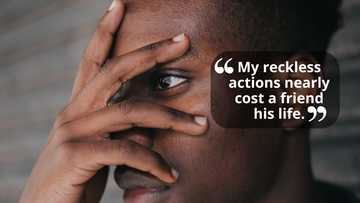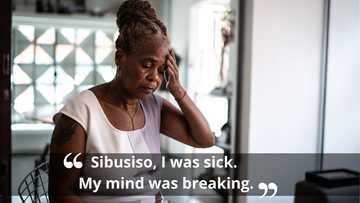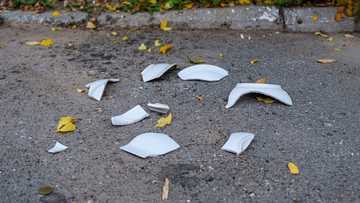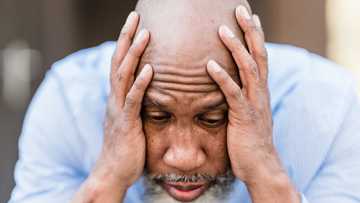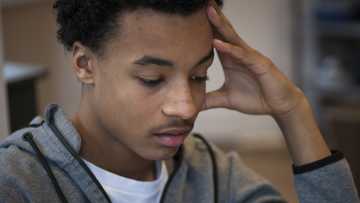We Shared A Helmet And A Dream — His Crash Broke Us, Our Promise Brought Him Back
I still remember the call, 3.17 a.m., that odd hour when only ghosts and night runners roam. "Your brother has been involved in an accident," the voice on the line said, trembling. "Near Soweto. Hurry!"
PAY ATTENTION: You can now search for all your favourite news and topics on Briefly News.
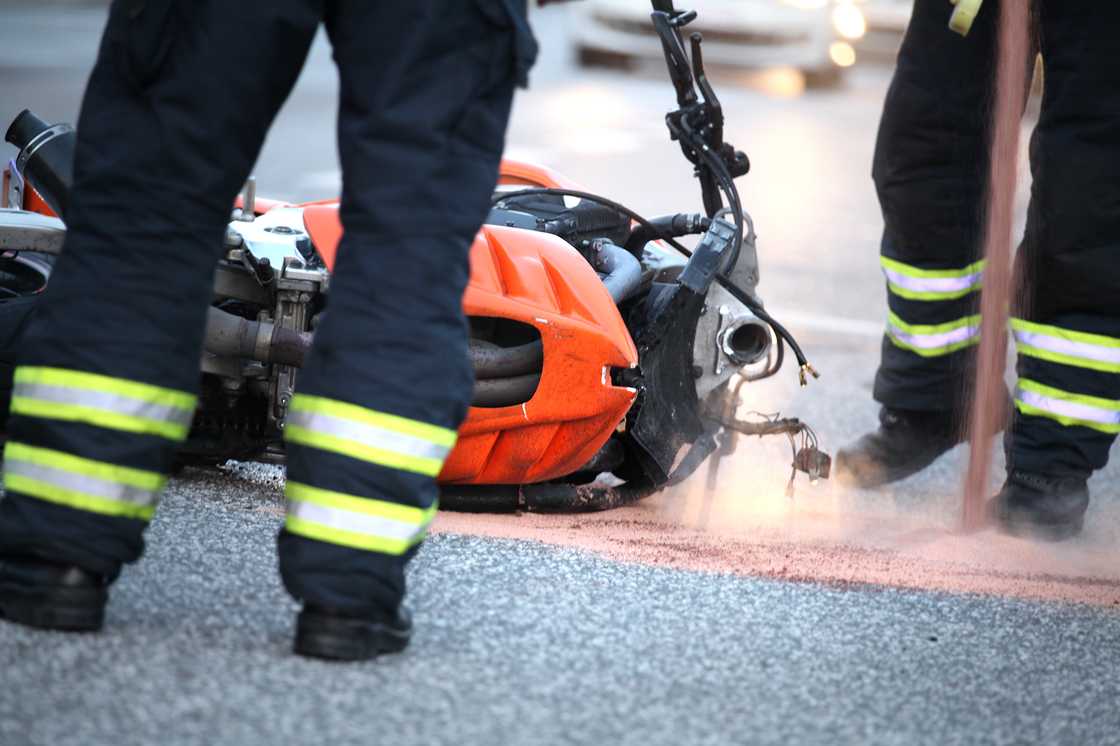
Source: UGC
By the time I got there, the crowd had already gathered. The bike we co-owned, our delivery bike, lay twisted like a dead insect under a streetlight. Our shared helmet was cracked clean down the middle. And my brother, my reckless, big-hearted Sizwe, was lying on the tarmac, blood oozing from his head, barely breathing.
I fell to my knees beside him. I didn't care that the police were shouting or that the crowd whispered about how the rider had no proper papers or insurance. All I saw was my brother, blood pooling around his dreadlocks, whispering, "Don't sell the bike, bro. Promise me."
That promise, made between sobs and sirens, would haunt and heal us in ways I never anticipated.
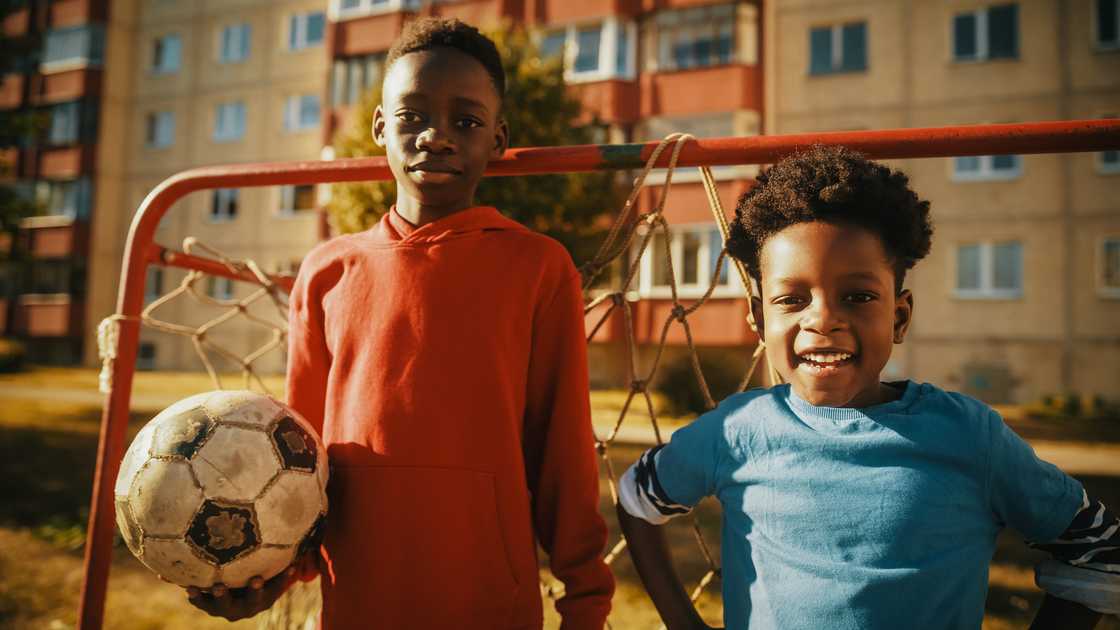
Source: Getty Images
PAY ATTENTION: Briefly News is now on YouTube! Check out our interviews on Briefly TV Life now!
Sizwe and I grew up side by side in Orlando East, sharing everything—food, clothes, and ambitions that frequently outgrew our pockets. After our mother passed away, our father, a retired mechanic, began to drink excessively.
Our childhood wasn't easy, but we had a defiant hope that kept us laughing even when supper was just yesterday's pap and rooibos. Sizwe was always the louder one, the kind who made friends with everyone at the estate, while I was quieter and more careful. We balanced each other out.
After Mum's funeral, Tata changed. His hands still smelled of engine oil, but his laughter vanished. He started sitting outside the house most evenings with a small bottle and distant eyes. Sometimes he'd fix broken generators or radios for neighbours, but the money would disappear before morning.
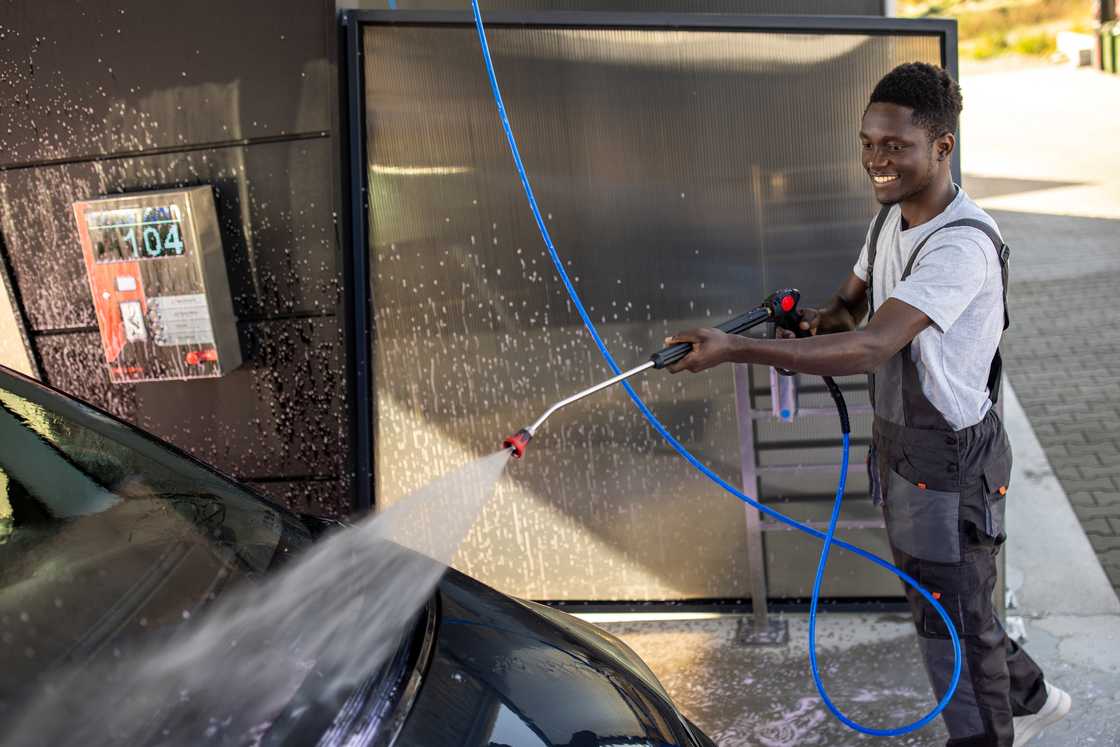
Source: Getty Images
Sizwe and I became the men of the house before we were ready. He dropped out of school in Grade 11 to hustle, washing cars, running errands at the stage, anything that brought coins home. I finished my Matric, but when the college acceptance letter came, I folded it away. We just couldn't afford it.
Still, I remember us sitting on the rooftop one night, looking out at the city lights and dreaming. "One day, we'll own something that works for us," Sizwe said. "Something that moves."
So we turned to what many young men in Johannesburg do when jobs don't come calling. We bought a delivery bike.
It wasn't much. A second-hand Boxer we bought from a friend at the garage, still smelling of fuel and sweat. I used my savings from odd construction jobs, and Sizwe contributed what he made from his small hustles.
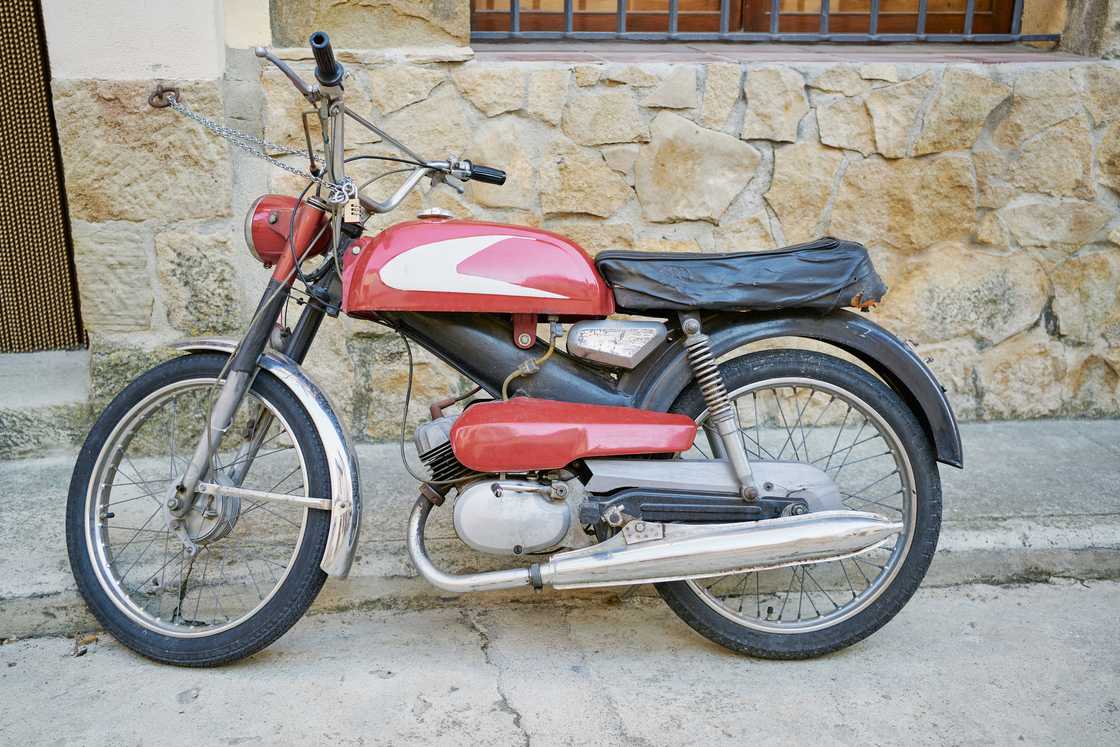
Source: Getty Images
We agreed on one rule: I'd ride during the day, he'd take night shifts. The income would cover rent, food, Tata's meds, and, hopefully, help me return to school someday.
When we rode it home for the first time, Tata actually smiled. "My boys," he said, patting the seat. "This is how men start." For a moment, it felt like our family had found its rhythm again.
We called the bike Lethabo, meaning "brave or fearless." It became our lifeline.
But over time, something changed. Sizwe started coming home late, speech slurred, eyes red. Some mornings, I'd wake to find the fuel tank almost empty and no record in the ledger.
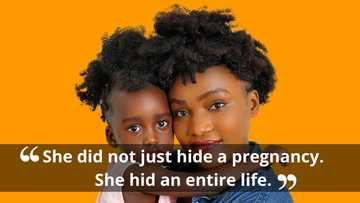
Read also
My Sister Hid Her Pregnancy and Child For Years — I Met My Niece, and We Agreed to Tell the Family
When I confronted him, he'd laugh it off. "Relax, bro. These streets are tough. But I'm handling it."
Only later did I learn what "handling it" really meant.
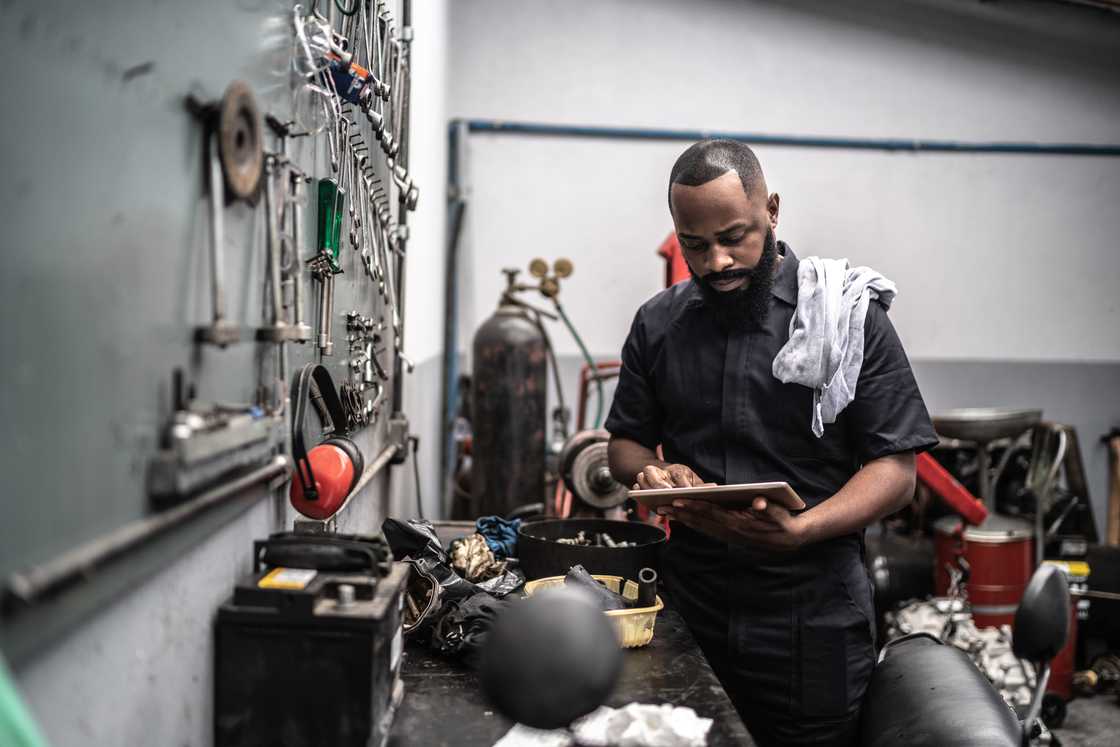
Source: Getty Images
The first red flag came one afternoon when a mechanic handed me a torn paper.
"Bro, your arrears for service, two months now," he said.
"What arrears? Sizwe said we cleared."
He sighed. "Then maybe clear it with your brother. He rides nights, but debts don't sleep."
That night, I waited for Sizwe. When he stumbled in past midnight, reeking of alcohol, I held up the paper.
"What's this?"
He froze. "It's nothing serious."
"Nothing serious? The logbook is in my name. If something happens—"
"Then we face it together, like brothers!" he snapped. "Don't act like you're perfect."
His words cut deep. Although he was my younger brother, that night, he looked older, hardened by cheap liquor and Johannesburg nights.

Source: Getty Images
After that night, the air between us thickened. We still shared a roof, but silence became our language. He'd leave without breakfast some mornings, and I'd pretend not to notice. Other days, he'd drop some coins on the table, trying to prove he was still pulling his weight.
But it was never enough. I started checking the mileage on the delivery bike, tracking how far he rode. The numbers didn't add up. He was doing extra trips.
Weeks passed. Our silence grew colder, our arguments louder. Then one evening, a customer came to our house demanding a refund for a delivery gone wrong. That's when I discovered Sizwe had been using the delivery bike for side hustles I didn't know about.
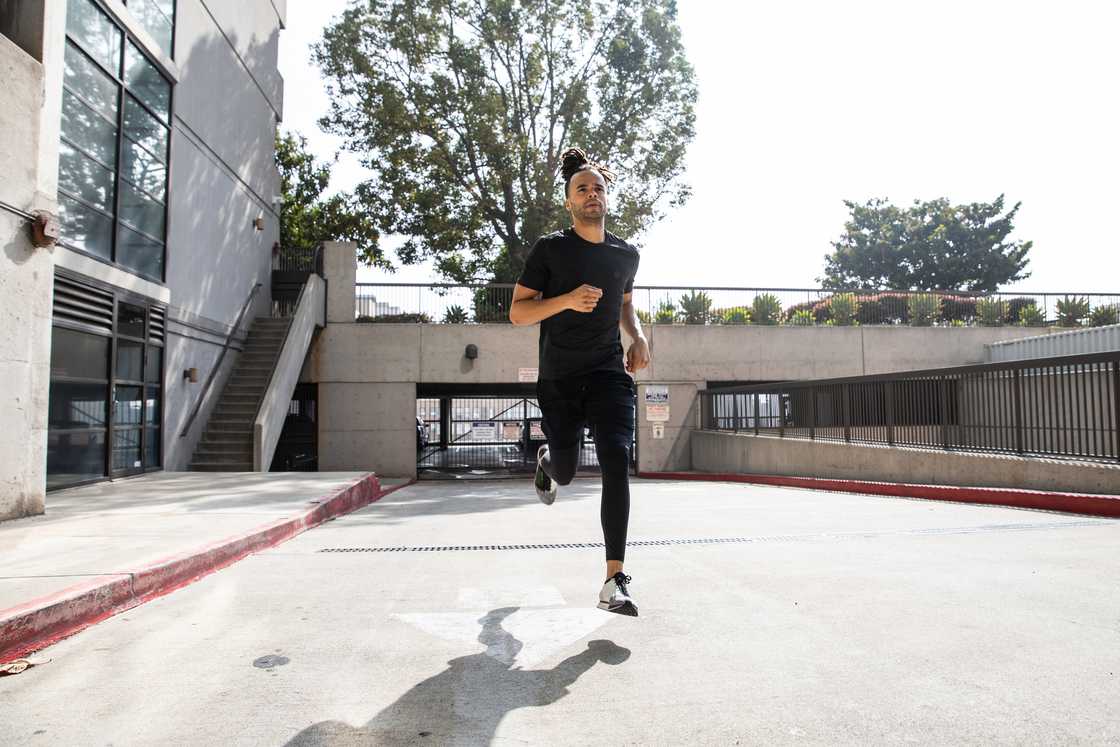
Source: Getty Images
I remember chasing after him down the dusty road that night, shouting like a madman while neighbours peeked from their doors. "You're destroying everything we worked for!" I yelled. But Sizwe kept walking, shoulders stiff, until he disappeared around the corner.
Later, he came back with bloodshot eyes and said, "You think I want this life, bro? You think I don't see how tired you look every day? I'm just trying to help." His voice cracked at the end; that was the first time I saw how lost he really was.
I considered selling the bike and ending it all. But Tata stopped me.
"You two must learn. That machine is your test," he remarked, his voice thick with wisdom and whisky.
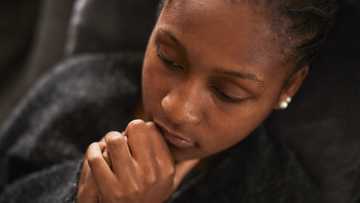
Read also
I Slept on Market Floors With No Money — A Kind Stranger Guided Me to Training and My First House
Then came the accident.

Source: Getty Images
After signing for his emergency treatment at Chris Hani Baragwanath Hospital, I learned the debts weren't just for maintenance. Sizwe had borrowed against the bike from a shylock, in my name!
For weeks, I drowned in shame and regret. The lender wanted repayment, the doctors needed deposits, and the bike, our dream, sat in a garage like a broken promise.
That's when desperation birthed an idea.
I took out my phone and started recording.
"Day one," I said, filming the hospital corridor. "My brother's fighting for his life. The delivery bike's in debt. I don't know where to begin, but we'll make it."
I didn't expect anyone to care. But by day four, strangers were commenting, offering prayers, and small donations. By week two, our videos had over 200,000 views on TikTok. People resonated with our story: two brothers, one dream, one mistake.
Then came the miracle.
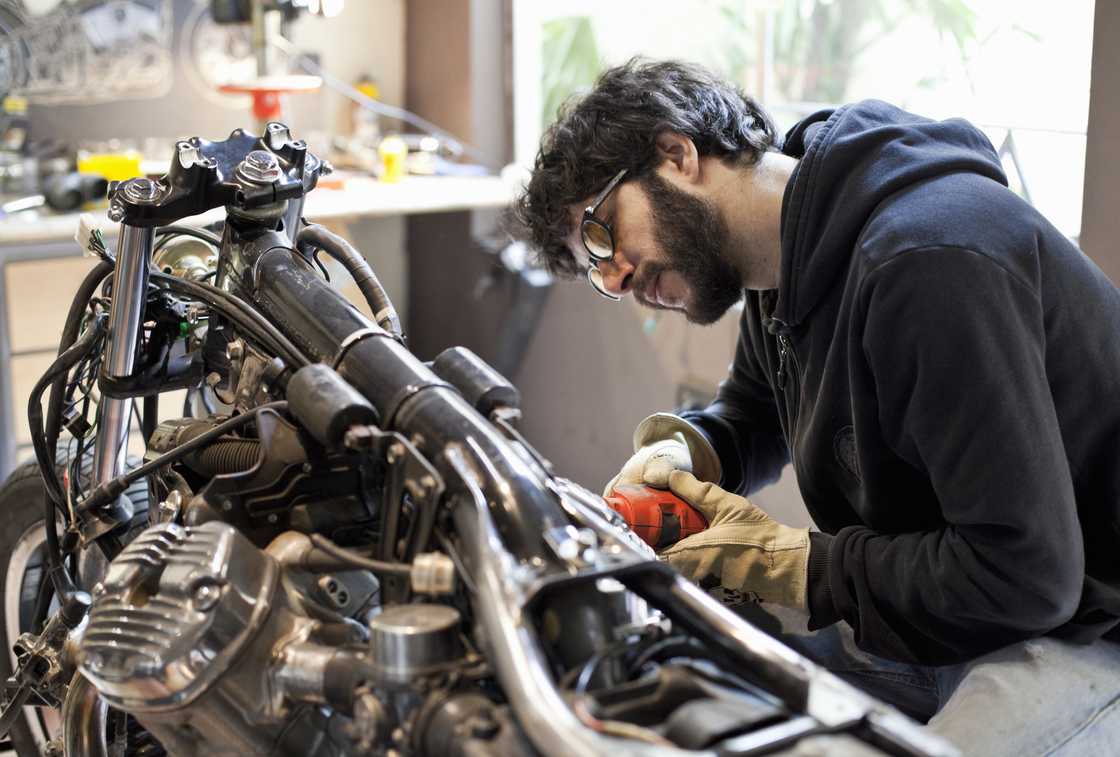
Source: Getty Images
A mechanic from Midrand texted: "If you document the rebuild, I'll fix the engine for free."
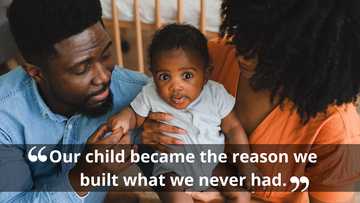
Read also
Both From Unstable Homes — Having a Child Forced Us to Build Daily Safeguards to Break the Cycle
A safety NGO commented, "We're sending two helmets. You'll ride again, safe."
Even the garage owner, who'd nearly auctioned the bike, told me, "Bring it back. Pay later."
Hope had a heartbeat again.
As Sizwe regained consciousness, I expected gratitude. Instead, he was withdrawn, almost ashamed.
"Bro," he whispered one day, eyes wet, "why didn't you just give up on me?"
I wanted to yell, because I couldn't! But I only said, "Because you're my brother."
He cried quietly, and that's when I realised the real injury wasn't in his head, leg, or ribs; it was in his pride. The accident had stripped him bare, forcing him to confront what he'd become.
Sometimes he'd stare at the ceiling for hours, lost in thought. I'd sit beside him, pretending to scroll on my phone, but really, I was watching him breathe, counting every exhale like it might stop.
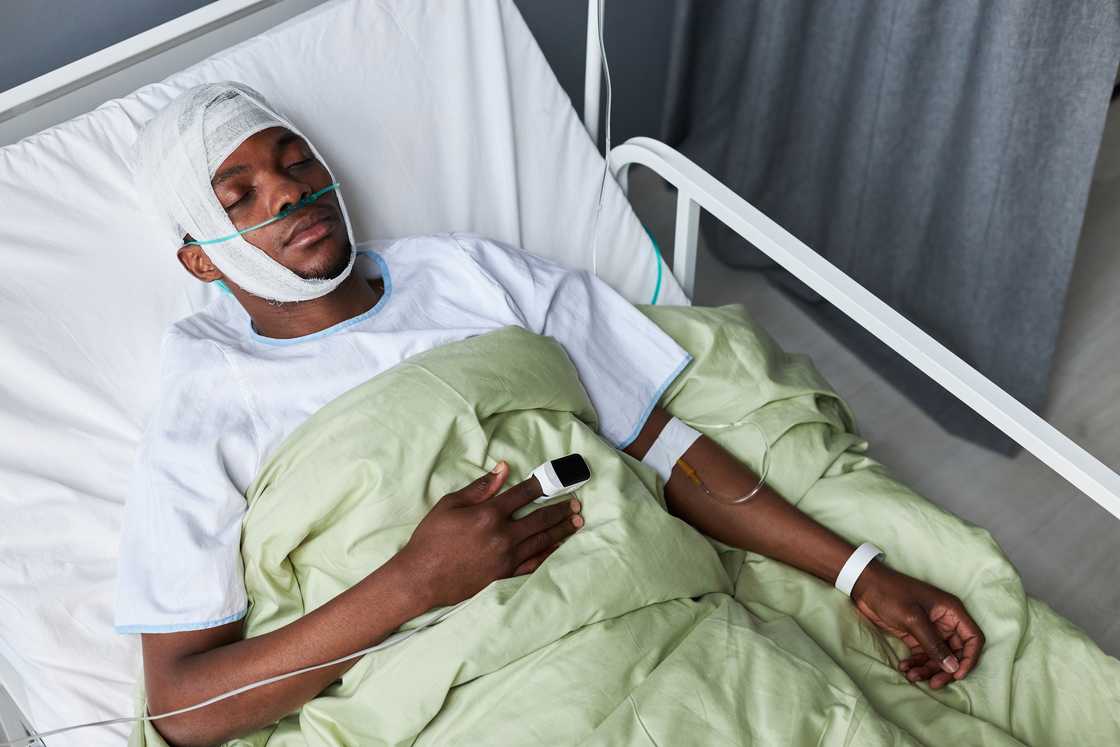
Source: Getty Images
At night, when the ward quieted down, I could hear him murmuring apologies to no one in particular. Once, I heard him whisper our mother's name, asking her to forgive him. That broke me. I hadn't realised how heavy guilt could sound until then.
When I told him about the videos and the support we'd received, he hesitated.
"You're showing them my shame?"
"No," I said gently. "I'm showing them our story."
He turned his face away, silent for a long moment. Then he asked, "And if they judge me?"
"They won't," I said, though I wasn't entirely sure.
But deep down, I knew it wasn't about what people thought but about him learning to see himself differently. If the world could forgive him, maybe he could, too. And maybe, so could I.
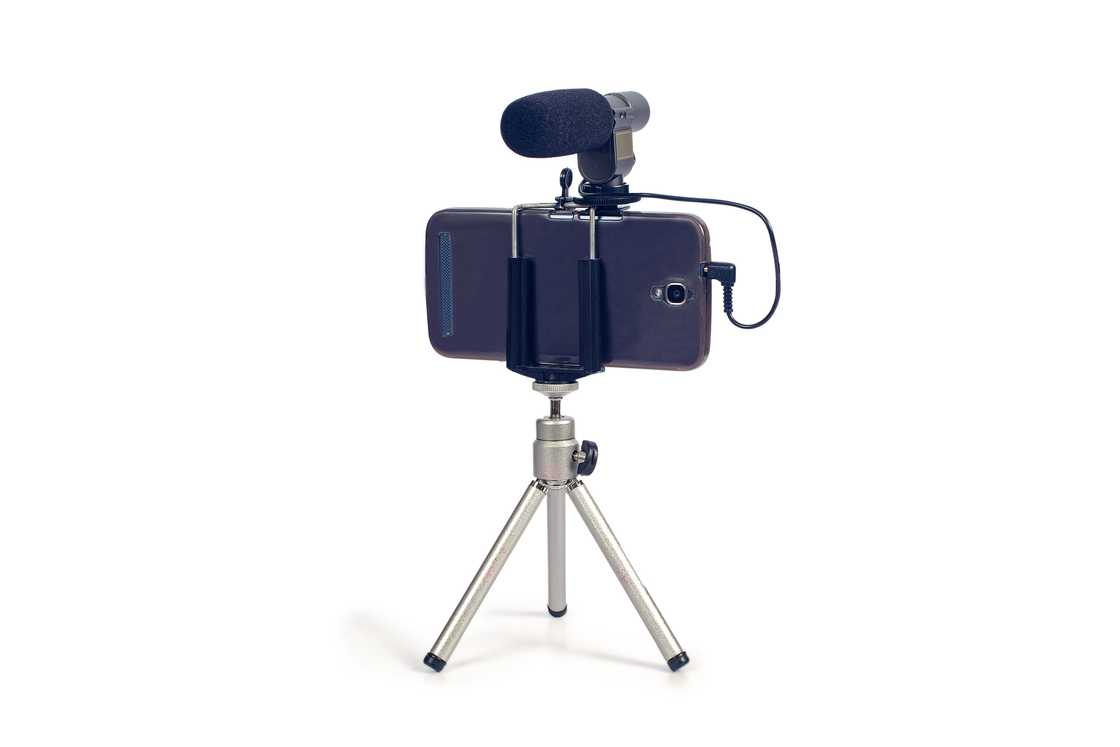
Source: Getty Images
After his discharge, he insisted on featuring himself in one video. He looked into the camera, bandaged and shaking, and said, "My name is Sizwe. I broke our trust. I broke myself. But I'm learning from my mistakes."
That clip went viral. People called it "real," "raw," "redemptive." We gained thousands of followers overnight, but behind the lens, I saw the weight he carried.
The attention was both a blessing and a burden. For every kind message, there was one that cut deep: people reminded him of his mistakes and called him reckless.
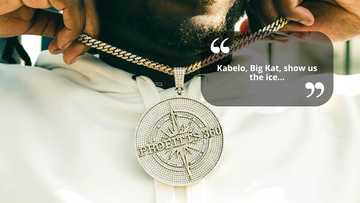
Read also
I Borrowed Drip to Fake a Rich Rapper Image — I Finally Quit Flexing and Released One Honest EP
One comment read, "He's only sorry because he got caught." I remember showing it to him, half expecting anger. Instead, he sighed and said, "They're not wrong. But maybe I can prove them wrong." That was the first time I saw determination in his eyes again, not shame.
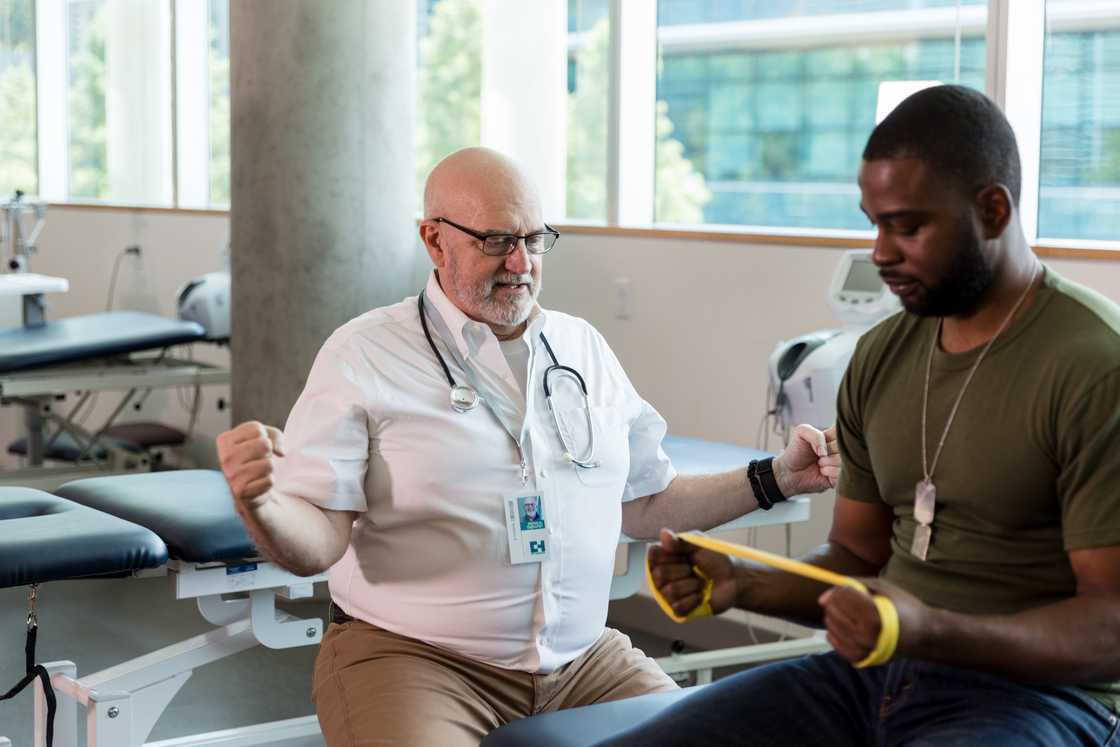
Source: Getty Images
Physiotherapy became part of our routine. Some days, he cursed the pain; others, he joked about how the nurses scolded him like Mum used to. Gradually, laughter made its way back into our lives.
Then, one day during filming, he confessed, "Bro, I was riding drunk that night."
The world tilted again.
I wanted to storm out, scream that everything—the debt, the sleepless nights, the scars—was his fault. But when I saw the tears in his eyes, I froze. He wasn't confessing to clear his conscience; he was laying it bare to heal.
I realised that forgiveness isn't given in words, it's chosen in silence. I stayed there, letting the truth settle like dust after a storm.
For days, I couldn't speak to him. The betrayal resurfaced, not just financial but moral. Yet when I saw him struggle through rehab sessions, refusing alcohol despite cravings, I understood. He was already punishing himself far worse than I ever could.
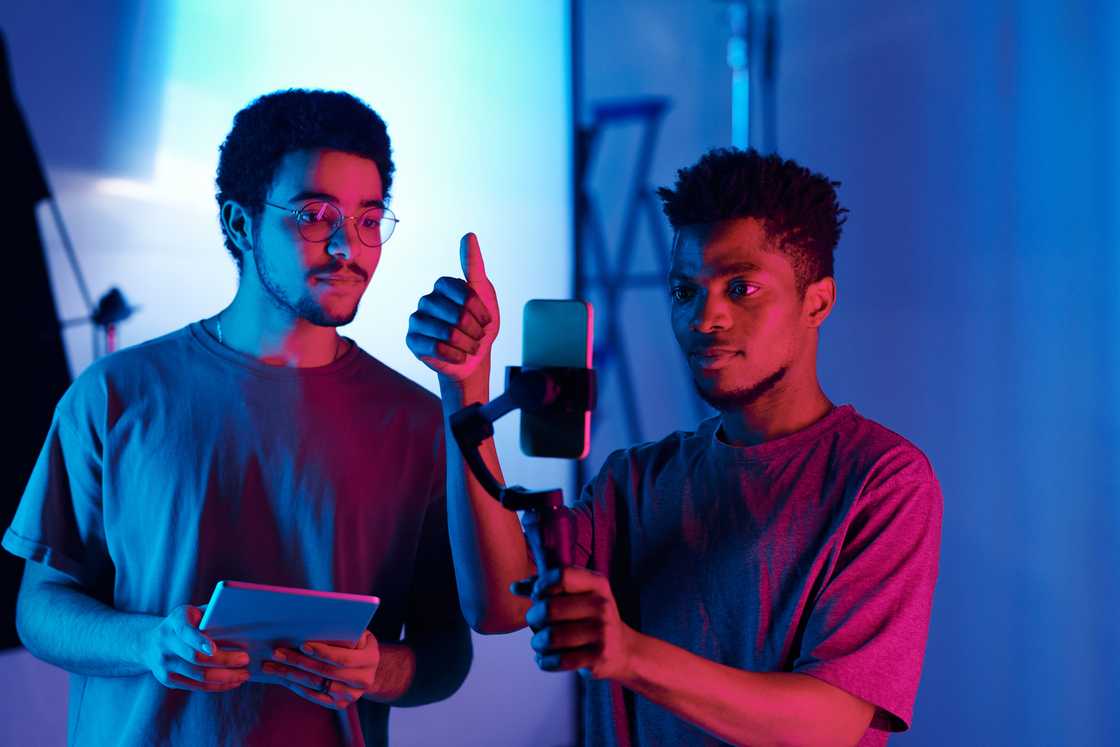
Source: Getty Images
We kept filming, not the polished parts, but the ugly truth: therapy, tremors, the nights he nearly relapsed.
And people loved it more. Not because it was perfect, but because it was human.
By the time Sizwe completed rehab, our TikTok account had become a movement. We named it Lethabo Riders after our battered but rebuilt bike.
Riders shared survival stories. Mechanics volunteered lessons on maintenance. A helmet brand sponsored our safety campaign.
At first, it felt unreal. Just months earlier, our names were whispered with pity. Now, people call us "the brothers who rose again."
Each message we received reminded me how far forgiveness could travel. Sizwe, who once hid from the world, now faced cameras with calm confidence. His limp remained, but it no longer carried shame. It carried memory. Every scar became a sentence in our testimony.
Together, we cleared every debt, bolt by bolt.
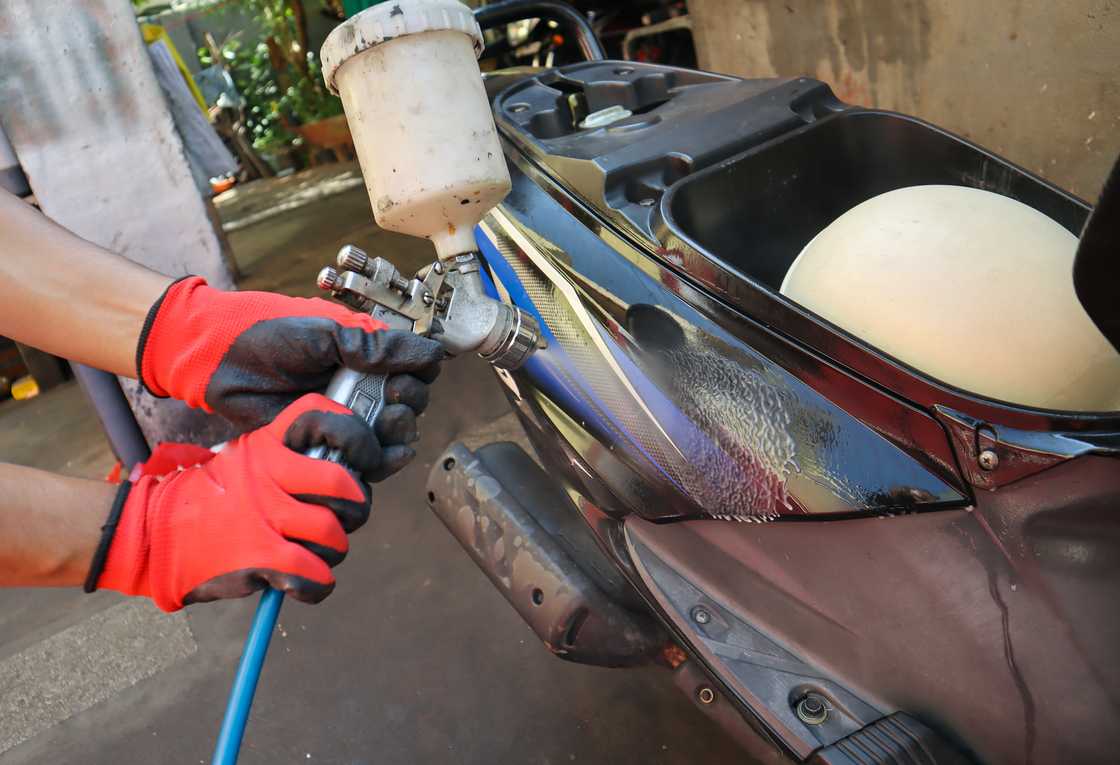
Source: Getty Images
One afternoon, as we filmed the final repaint, Sizwe turned to me.
"You forgave me when you shouldn't have," he said.
I smiled. "You rebuilt what you broke. That's what matters."
We stood silently, watching the sun reflect off the fuel tank. The bike's shine felt symbolic. Proof that even rusted things could return to glory.
For a moment, I thought about selling it and starting fresh. But I realised letting it go would mean forgetting the lessons it carried. Some things deserve to stay, not as reminders of pain but progress.
That evening, we rode through the same Soweto where his crash had happened. The streetlight still flickered above the spot, like a silent witness. But this time, we stopped, not to mourn, but to pray.
He removed his new helmet and whispered, "We shared one once. Now we share a mission."
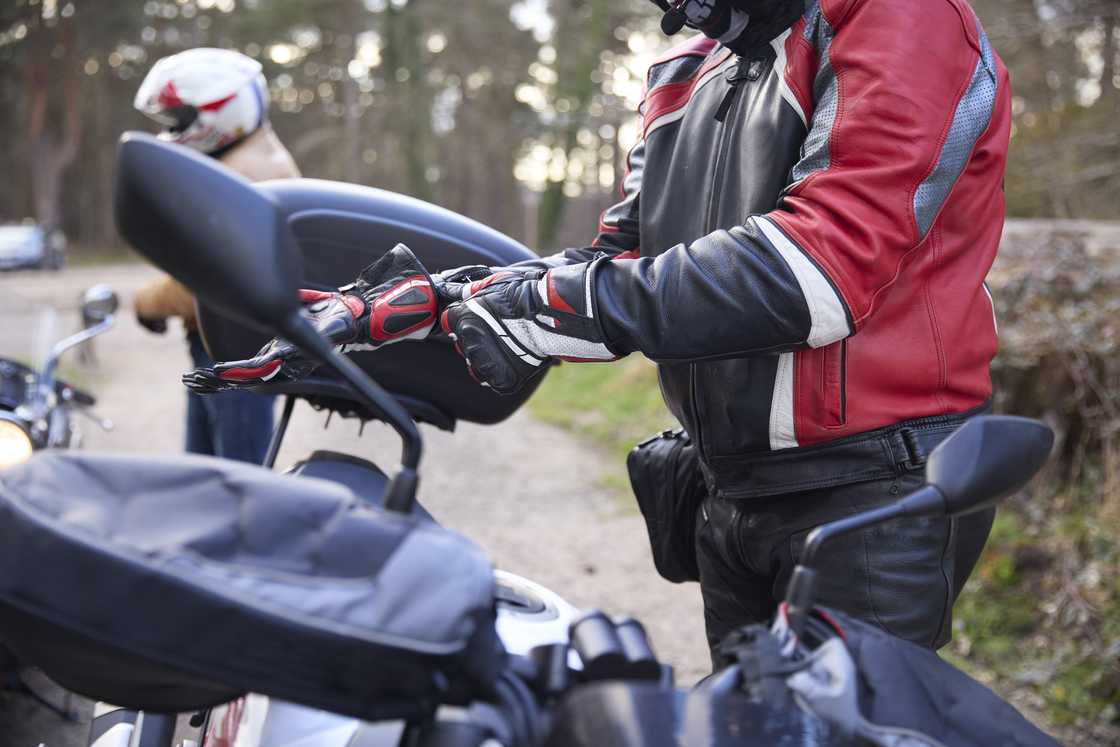
Source: Getty Images
And that's how we began our safety project: by organising reflective vest drives, training young riders, and filming road awareness stories.

Read also
My Business Outgrew My Husband's Income — So He Accused Me of Witchcraft and Tried to Shut Me Down
Sizwe became the face of redemption. I became the voice behind the camera. Together, we turned pain into purpose.
Even Tata sobered up, watching our clips at home, pride replacing disappointment.
"Mum would have loved this," he said one night, eyes glassy. "You boys turned her prayers into action."
Every milestone, every repaired part, became a brick in rebuilding our trust.
Sometimes, life doesn't break what's weak. It breaks what needs rebuilding.
Sizwe's crash wasn't just an accident; it was our wake-up call. It forced us to face our financial, emotional, and moral debts.

Source: Getty Images
Forgiveness isn't soft; it's surgical. It cuts through resentment to heal what's real.
I learned that love between brothers isn't proven by blood, but by how much you'll bleed for each other's second chances.
Today, every time we post a new video, I remember the promise I made on that blood-stained road: Don't sell the bike.
We didn't sell it. We repaired it.
And in doing so, we repaired ourselves.
So, when life cracks your "helmet," your shared dream, will you throw it away...or will you rebuild it, scar by scar, until it shines again?
This story is inspired by the real experiences of our readers. We believe that every story carries a lesson that can bring light to others. To protect everyone’s privacy, our editors may change names, locations, and certain details while keeping the heart of the story true. Images are for illustration only. If you’d like to share your own experience, please contact us via email.
PAY ATTENTION: Follow Briefly News on Twitter and never miss the hottest topics! Find us at @brieflyza!
Source: YEN.com.gh


